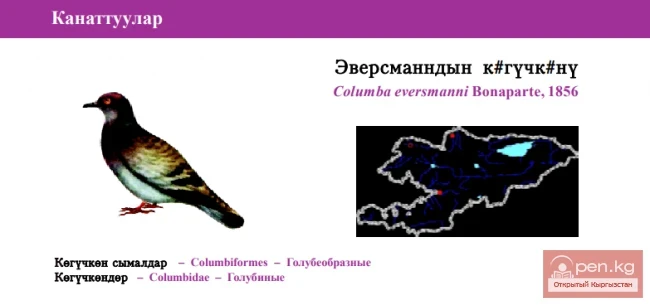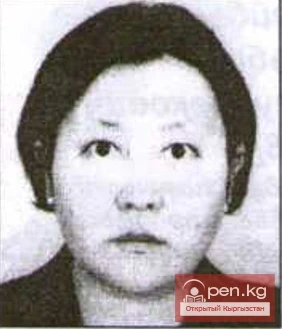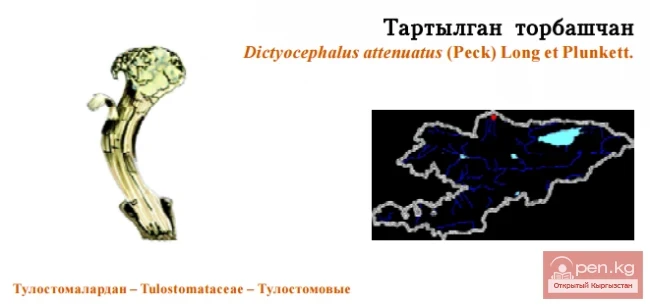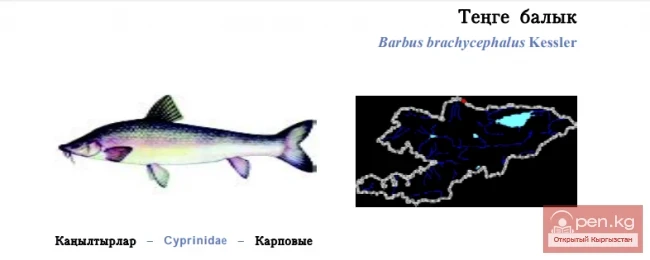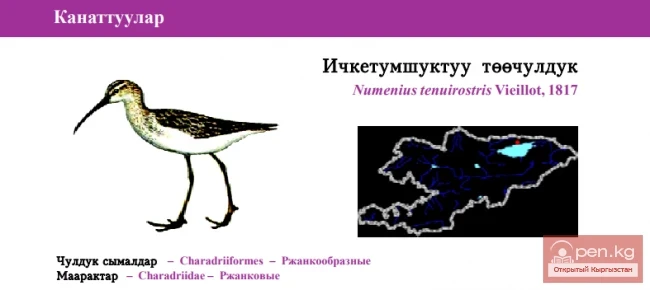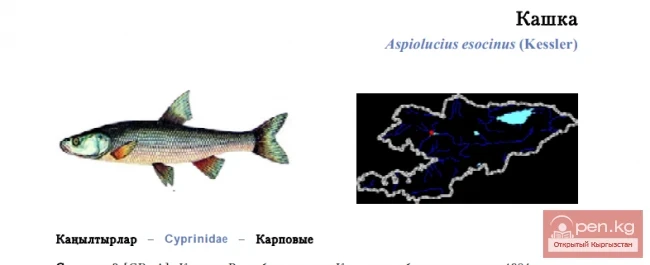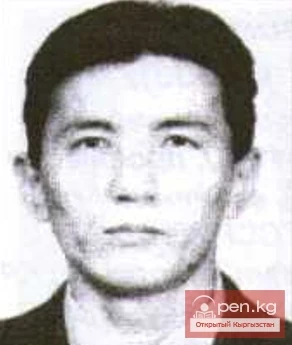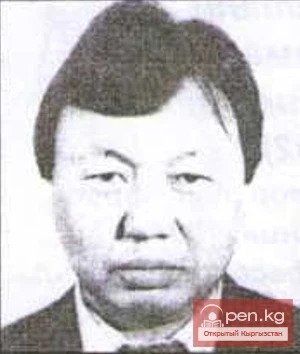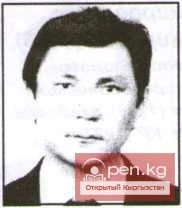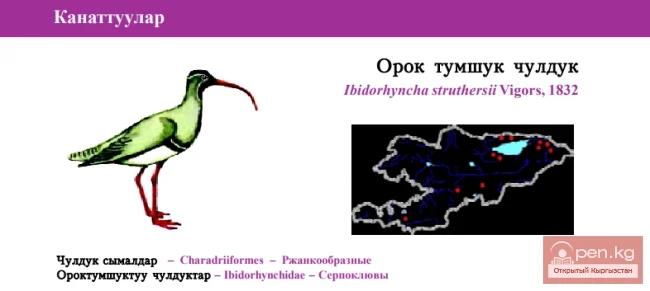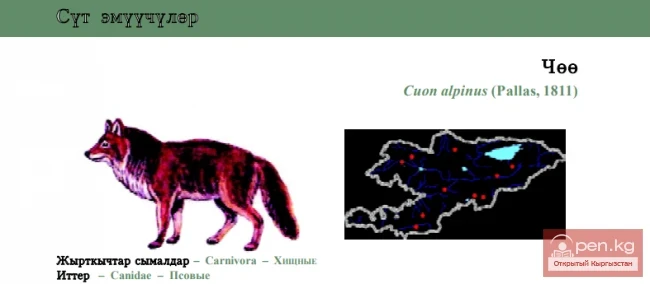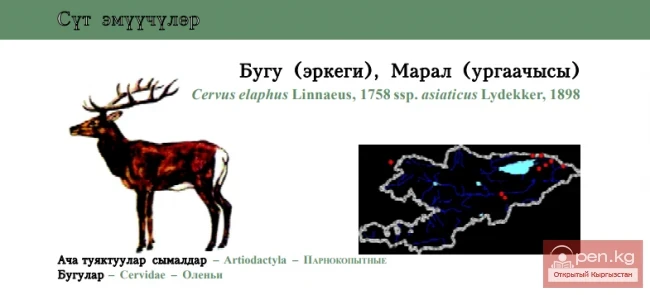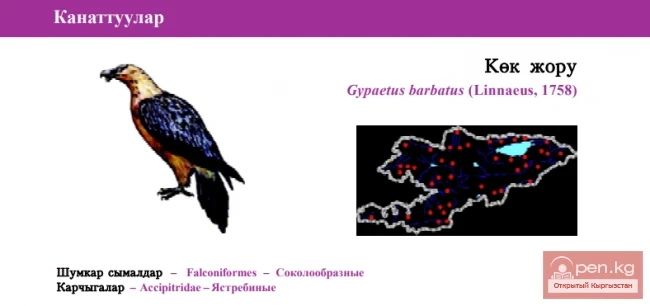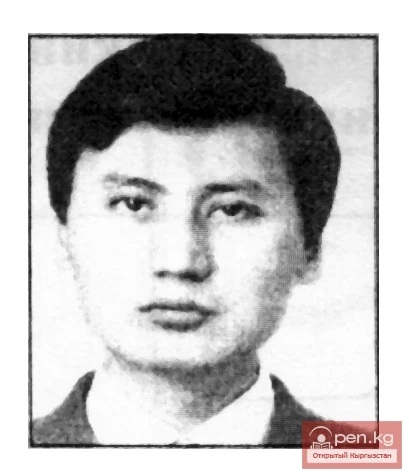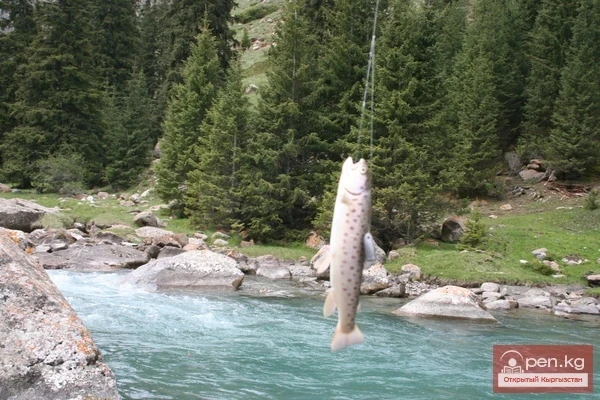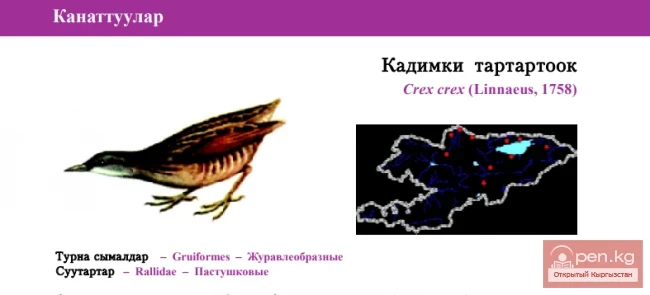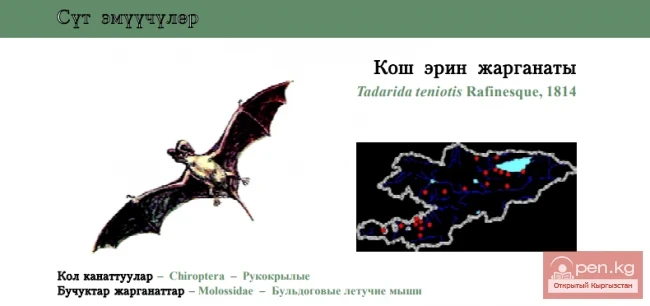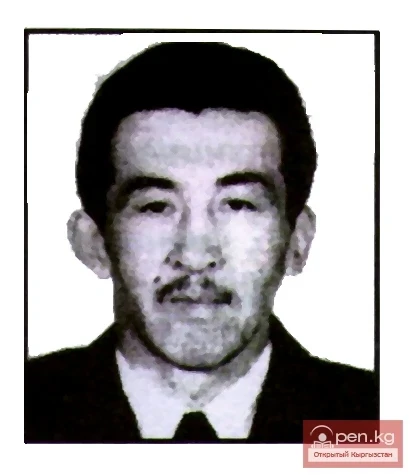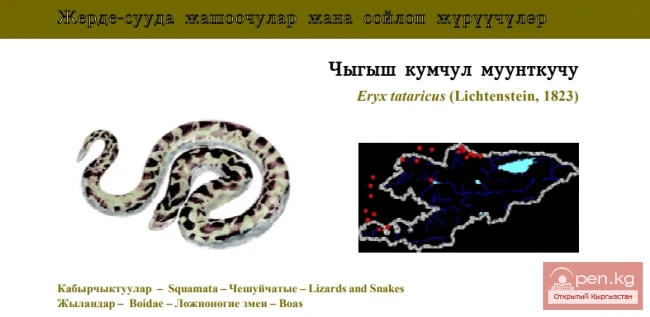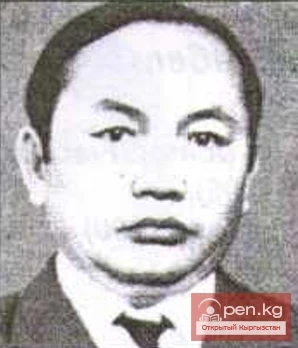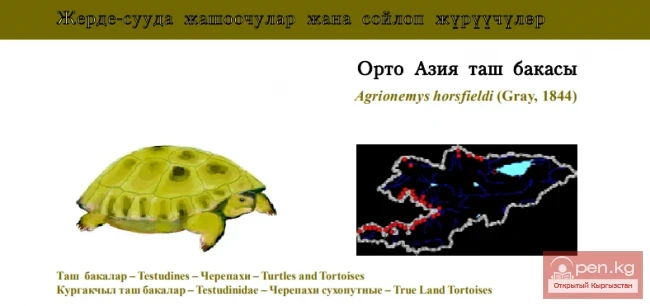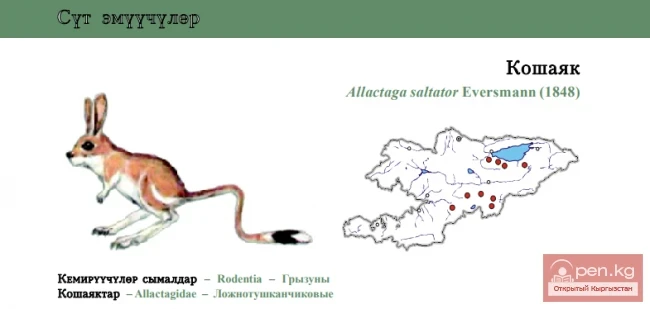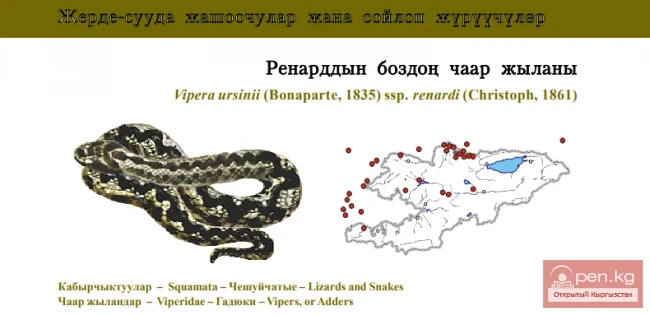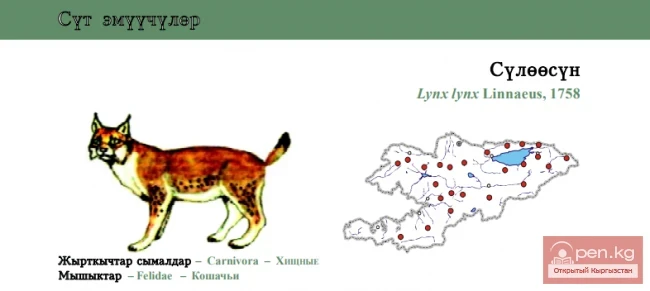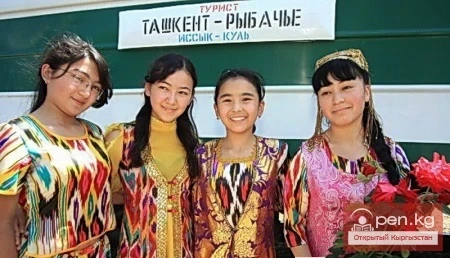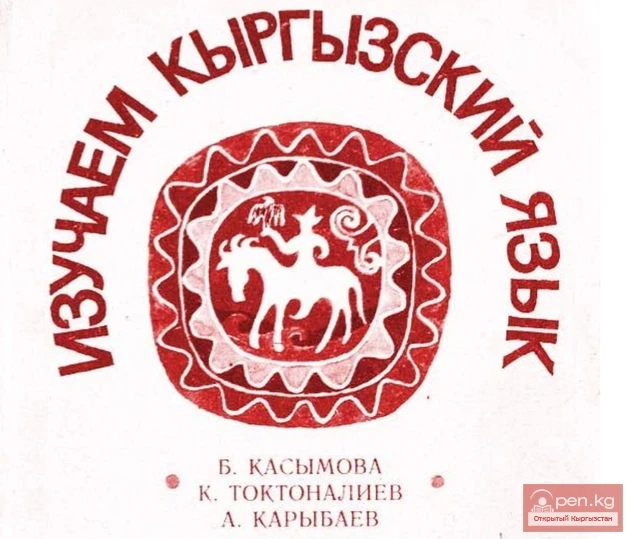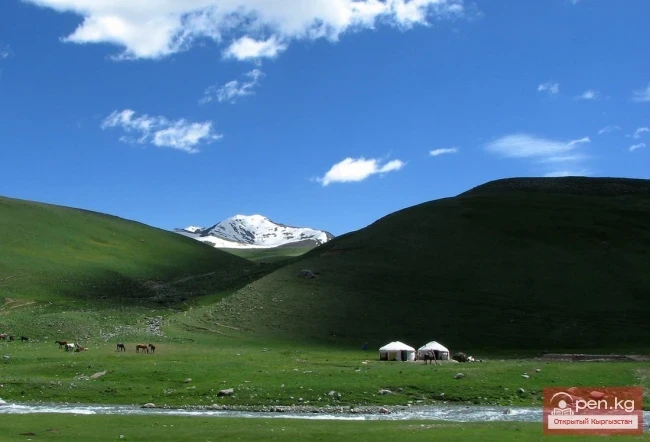
It was a long time ago, when rivers flowed clear and full, when magpies were not thieves, and when people had just begun to divide into the rich and the poor. During this time, there lived a poor man named Erdene. He lost his parents as a teenager, and he had to earn his bread early. Since he only knew how to take care of livestock, he lived by working for the wealthy as a shepherd.
Time passed — Erdene married a smart but poor girl, and they had three children: two boys and one girl. The children were still small when the rich man for whom he worked as a shepherd said, "You’ve become a poor shepherd, Erdene. Either you’re lazy or you’re thinking too much about something of your own. I don’t need a shepherd like you: the sheep have stopped gaining weight. Go in peace and live as you can,"— and he kicked Erdene out.
"What to do? — the young shepherd was disheartened. — How will I feed the children? I don’t know how to plow the land, sow wheat or millet; no one has taught me this. I don’t know how to hunt wild animals either..."
With his head hanging low, Erdene returned home and told his wife that he had been kicked out by the rich man...
— "Dying of hunger for us is still half the trouble,"— said his wife. — "At least we’ve lived a little in this world. It’s the little children I pity. What are they guilty of for being born poor? If you sit idly at home, you won’t help our misery. Better go gather some chiy. Cut as much as you can, take it to the market, maybe you’ll sell it. With the money, you can buy flour, and I’ll manage to bake some flatbreads from it."
Erdene, taking a long hair rope and a crooked sickle, set off to carry out the task.
Chiy grew right behind the yurt. But here the bushes were sparse, stunted, and the stems were low. "I’ll walk a little further,"— decided Erdene. — "Maybe I’ll find tall, thick chiy. Probably, the longer the stems, the more expensive they are at the market. It’s a pity my wife didn’t say anything about this; she surely knows which chiy is better."
And Erdene walked and walked further and further. The chiy became thicker and taller. Soon, Erdene wandered into such thickets that a rider could hide completely in them.
"I’ll rest a little and start cutting,"— decided Erdene and, throwing the rope under a large chiy bush, sat down. It was so quiet around that he could hear the beating of his heart. Soon, he heard a sound as if a horse was crunching grass: "Chrysy-chrys."
Erdene jumped to his feet and cautiously approached the sound. And he saw not horses — four large black mules were gnawing at the young chiy stems as if they were sweet cane.
Looking around, Erdene realized that he was in an ancient cemetery. The mounds of graves had long settled, almost leveled with the ground, some had collapsed. In one of the depressions lay four kurdjuns, and around them were scattered golden tangas — coins.
"Whose mules are these? — thought Erdene. — Whose kurdjuns with gold? I’ve never seen such wealth in my life. And on an old cemetery at that. Something is not right here. I need to get out of here quickly. Maybe someone is watching over all this wealth."
And Erdene hurried back home: "Maybe my wife will have some advice."
Just as he emerged from the tall chiy thickets, he encountered two guards of the khan.
— "Hey, who are you?" — the guards asked. — "What are you doing here?"
— "They call me Erdene,"— replied Erdene. — "I am the poorest man in this region. I have three little children. I came here for chiy stems to cut and sell two or three bundles at the market. I’m just looking for suitable bushes."
— "At night, thieves broke into the khan's barn,"— said the guards. — "They stole a lot of gold coins from the khan’s treasury. The gold was taken away on four of the khan's mules. Have you seen them? The khan said that whoever finds his gold, the mules, and reveals the thieves, he will spare nothing for that person."
A bright idea struck Erdene.
— "Take me to the khan,"— said Erdene to the guards. — "I want to talk about this important matter only with him. How do I know who you are? You might also be thieves disguised as guards?"
The guards had no choice but to take Erdene to the khan himself. The khan, seeing a poorly dressed man with a sickle in his hand, was surprised.
— "Who are you?" — asked the khan. — "I see you’ve come to me with a sickle and a rope. Speak, why?"
— "Oh, great and wise khan!" — said Erdene. — "I am a simple poor man. I have a wife, three little children, and nothing else. I think we will soon die of hunger: there is not a single grain left in the yurt. I came to help you find the missing treasury."
— "Do you think you will find my gold stolen by thieves? Ha-ha-ha!" — laughed the khan. — "My detectives, healers, and book readers have been looking for it for a whole day — what can you do? Or are you perhaps insane?"
— "I am of sound mind,"— Erdene said with offense but also with pride. — "I can help you find your gold."
— "And what will you ask for as a reward?"
— "A little. Give me forty days to search. For all these days, feed me and my children well. And when I find your gold, you will give me ten camels, ten horses, nine cows, nine sheep, and two bags of flour. That will be enough for me, and for you, it’s just a trifle... Oh, yes, I almost forgot. Over there, above that deep ravine, set up a yurt for me. And make it so that neither day nor night can even a mouse get in. Let the strongest and bravest horsemen guard it. I will live there alone for forty days. I will only call you when I need you."
— "And if you do not find the thieves?" — the khan doubted.
— "Then order my head to be cut off. I have one more request."
— "What is it? Speak."
— "Allow me to ride a quiet horse, or better yet, a nag, to go home, to my wife, to say goodbye to the children. If you do not trust me, let your guards accompany me on this trip."
— "Alright, let it be as you wish,"— agreed the khan.
And Erdene, accompanied by four guards, rode home. There, he went into the yurt alone, told his wife to go with the children to her parents for a while, and that he would find them himself if he remained alive. And he gave her several gold coins, graciously lent to him by the khan.
When Erdene returned to the khan, a sturdy, well-built yurt had already been set up over the ravine. On one side, the yurt was guarded by a strong guard, and on the other, there was a deep ravine from which no one could climb up to it. Erdene himself did not really know why he chose this place for the last forty days of his life. He knew one thing: he would not be able to catch the thieves; he simply wanted to live peacefully and quietly in the remaining days, and most importantly, to eat well.
And so, in his sturdy, guarded yurt, Erdene indulged in a feast. And it was quite natural that this story began to gather various speculations and details on the very first day.
— "They say a clairvoyant man came to the khan,"— people whispered. — "He made the khan set up a yurt for him over the ravine. The khan is like a servant at his beck and call. He only dives into the yurt; no one else looks in there. What could this mean?"
The land was filled with rumors. These conversations quickly reached the thieves, and there were forty of them. A whole gang engaged in major thefts.
The thieves were alarmed. "If he is a real clairvoyant, he will find us in no time,"— they decided. — "We need to find out what is happening in that yurt. You can’t approach it from the open, western side — there’s a guard there. From the eastern side — a deep ravine. We need to make a long ladder, climb it, and eavesdrop on what the clairvoyant is discussing with the khan. They say the khan often visits the yurt."
Erdene, indeed, called the khan to him several times on the very first day: he needed horse meat, fresh sheep fat, fatty lamb, kumys... Later, he asked... for forty grains of wheat.
— "And why do you need wheat? Exactly forty grains?" — the khan was surprised.
— "That’s my business!" — Erdene said sharply, unexpectedly for himself. — "The more you know, the sooner you’ll grow old. Now go away... I will engage in divination."
The khan was taken aback by the audacity of the poor man and, bowing to the former shepherd, as if scalded, rushed out of the yurt — he did not want to argue: for the sake of his gold, he was ready to wash Erdene’s feet — he was that greedy.
Erdene, waiting for the khan’s footsteps to fade outside the yurt, placed forty grains of wheat to the right of the dostorkon and began to eat. Now he was happily devouring a piece of fatty lamb with flatbread and washing it down with hot aromatic broth.
When the roosters crowed midnight, one of the forty thieves climbed the long ladder and began to listen to the rustling in the yurt. At that moment, Erdene moved one grain of wheat from right to left. Just then, the impatient khan appeared again.
— "Oh, great khan,"— said Erdene,— "here comes one of the forty, he will leave soon, and there are still thirty-nine left."
— "What does that mean?" — asked the khan.
— "You wouldn’t understand, my lord. I will explain everything later. Go to your chambers and from now on, come to me only at midnight..."
The khan left, not understanding what Erdene’s words meant: "One will leave soon, thirty-nine are left." For Erdene, they meant: one day has passed, he has thirty-nine days left to live. The thief, eavesdropping on the ladder, interpreted it in his own way: here, one of the forty thieves has come, he will leave soon, and there are still thirty-nine left. From this guess, the thief nearly fell into the ravine. Hiding the ladder, he hurried back to his friends.
— "Well, tell me, what did you find out?" — the gang leader greeted him with a question.
— "He is a real clairvoyant,"— said the thief. — "He knew that I had come and was eavesdropping."
— "How did he know that you were eavesdropping?"
— "He told the khan that one has come, and there are still thirty-nine left."
— "Lies. That can’t be. How could he know how many of us there are? Tomorrow you will go!" — ordered the leader to another thief.
The next night, he was already standing on the ladder, right by Erdene’s yurt when the khan entered.
— "Listen carefully to me, great khan,"— said Erdene. — "The second has come, he will leave soon, and there are thirty-eight left." — With these words, Erdene took one grain of wheat from the pile and moved it to the left side of the dostorkon.
— "No, by God, I don’t understand anything,"— said the khan.
— "That’s good, even wonderful, that you don’t understand anything. I know what I’m doing. Now you can go."
And Erdene not very politely ushered the khan out of the yurt. The thief, hiding the ladder, returned to his companions and told them everything he had heard. But again, no one believed him.
This continued for several days. Almost half of the thieves had been on the ladder at midnight by the yurt. They now believed that Erdene was a clairvoyant.
— "Today I will go,"— said the oldest and skinniest thief, like a morel. — "He won’t fool me."
The old man stood on the ladder when, greeting Erdene, the khan appeared to him. Erdene only nodded his head in greeting and said:
— "Strange thing, my lord. Today the thinnest, most wrinkled one, like a morel, has come. He is the twentieth. But he will leave soon. And there will be twenty left. What will they be like?"
Erdene held a wrinkled, greenish grain of wheat between his fingers.
— "Oh, the chief thief!" — with these words, the old thief burst into the yurt where the thieves were waiting for his return. — "He accurately described my portrait: that I am old and thin, like a morel. No, now I believe he is a clairvoyant. I have two proposals: either we must confess to this seer, or we must kill him. Otherwise, he will guess all of us and hand us over to the khan for punishment."
The chief thief decided to check for himself. And so, at midnight, he was already standing on the ladder. The khan entered the yurt. He greeted Erdene, but the thief did not see them, only heard.
Erdene, without looking, took a grain with two fingers. This time he picked up a full, round, plump grain.
— "Oh, great khan!" — exclaimed Erdene. — "The most important one has come, the twenty-first. So full, round-faced, fat. But he will leave soon. Nineteen remain. What will they be like?" The khan, bowing silently, left.
The chief thief was astonished and amazed. Now he too believed that this man would find them. What to do? It was impossible to kill him: the guards were watching him day and night. There was only one thing left — to try to come to an agreement with him.
— "Sir,"— he spoke in a quiet voice,— "forgive us for going into a bad business — we climbed into the khan’s treasury. You found us, now we are your prisoners. I would like to know your conditions. Ask for anything, just don’t hand us over."
Erdene heard the voice clearly, but did not understand anything.
— "And what can you give me in return?" — he asked at random.
— "You know that we stole the khan’s treasury. I am the leader of the gang of thieves. There are forty of us. But don’t think, sir 'seer', that we are hardened thieves and steal out of idleness. No, we steal very rarely because we live poorly. We steal so as not to die of hunger. Don’t hand us over to the khan. He will behead us, and our children will be left orphans."
— "I was convinced that you would come to your senses and confess. Good for you for coming yourself. I could have handed you over to the khan long ago, twenty-two days ago. It’s good that you came to your senses. But what to do with you? Suggest something, if you are the chief thief!"
— "There are forty of us. Each will give you one horse. The khan’s gold is intact..."
— "I know where it is. You don’t need to continue. There are also four mules there."
— "That’s right, our clairvoyant!" — exclaimed the chief thief. — "Save our souls! Don’t tell the khan about us. He won’t spare us."
— "Alright. I am a man of my word; I will do a good deed for you, even though you are thieves and deserve the harshest punishment for encroaching on the treasury of the khan himself. We will do as you suggest. Go back to your bandits, gather forty horses, hide them in the first gorge on the western side of the mountains. At the appointed time, I will steal them. You all disperse to your yurts, lock yourselves in for three days, and do not go out. Whoever violates my first condition will face death. My second condition is that you will all stop stealing and live by honest labor like all honest people. Agreed? Do you give your word that you will fulfill these conditions?"
— "Agreed. I give my word. We will do as you commanded. We will stop stealing as a harmful, criminal activity."
— "That’s good. Then go and fulfill!"
The thieves, learning how their fate was resolved, rejoiced and celebrated. They quickly gathered forty horses, drove the animals to the designated gorge, and dispersed to their yurts. Early in the morning, Erdene woke the khan from his sleep. He rushed to him without even washing his face.
— "Something important has happened?" — asked the khan from the threshold.
— "Yes, my great lord. I found your gold. I know who stole it. There were forty of them. Knowing that I found the place where they hid four kurdjuns and four mules, the thieves fled to distant lands. I think it’s not worth searching for them. It’s more important to return the gold to you. Isn’t that so?"
— "That’s right, that’s right, clairvoyant! If the thieves didn’t take a single gold coin, why waste effort searching for them? Well, where is the gold hidden? Far from here?"
— "Close. Let your guards go to the old cemetery. There, in the thick tall chiy, there is a sunken grave. In it lie four kurdjuns filled with gold coins. Nearby, your four dark mules are grazing."
— "Thank you, wise man and seer!" — exclaimed the khan. — "Take as much food as you want and return home."
— "No, no, khan, I will wait until your people bring the gold here."
— "And that’s fair. You are a just man, as I can see. Here are another hundred gold coins; I think they will last you a long time..."
Erdene waited until the guards brought four mules loaded with kurdjuns of gold. The khan, having confirmed that all the money was intact, embraced Erdene as if he were his own son and let him go home.
Now Erdene had so much livestock and gold that every wealthy man would envy him. What were forty horses worth, received from forty thieves?! Erdene, so that the horses wouldn’t stand idle, saddled a new one every day, riding around the ails like a merchant. He bought fresh lamb from some, horse sausage — kazy, chuchuk, from others, flour from others... And he began to be seen more and more often at the market: sometimes he bought a piece of fabric for his wife, sometimes sweets and toys for the children, sometimes satin for a new blanket...
In short, Erdene lived well. Three months passed. Everything was good for him, everything was prosperous. But suddenly he was called to the khan again. The man who came for him on behalf of the khan said: "The khan, while washing his face in the morning by the irrigation ditch, took off his golden ring, placed it on a stone, and then, forgetting it, left. He remembered the ring only at home. He returned, but the ring was no longer there. He raised a commotion, became furious for real. He summoned all the wise men, clairvoyants, and fortune-tellers. But none of them could find the missing ring... Of course, the khan will not survive the loss of his favorite golden trinket. The ring was inherited from his father, and that one from the old khan. This is their family relic, a symbol of power. That’s why the khan became so agitated; if the ring is not found, he will soon lose his high throne..."
When Erdene heard that the khan was calling for him, he nearly lost consciousness. "Everything went well with the khan’s gold because I knew where that gold was,"— Erdene reasoned. — "The thieves rescued me from trouble themselves. But who will help me here? If I tell the truth that I am not a seer, that pure chance helped me find the gold? The khan, upon hearing that I deceived him, will most likely order my head to be cut off or, at best, throw me into a dungeon. What should I do? Oh, my poor head!"
Bitterly crying, Erdene kissed his little children goodbye, hugged his wife, and went to the khan with his head down.
When Erdene entered the khan's courtyard, the first thing that caught his eye was a young woman who was cleaning the insides of a large sheep that had been slaughtered that morning by the irrigation ditch. Next to her, apparently waiting for a handout, lay a huge mastiff.
It must be said that Erdene had dealt with such dogs before — they had bitten him more than once, so he was afraid of all dogs in the world. Seeing the dog, Erdene froze in place: "What if it bites me before the khan does?" — thought the former shepherd. He stared at the dog, feverishly devising a way to protect himself if the mastiff lunged at him. For some reason, the khan’s servant girl felt that the man who had come was looking at her as if he were piercing through her with his sharp gaze. Her heart raced, and her cheeks turned red like ripe cherries. "I’d rather die, but I will tell the truth,"— the young woman thought, overwhelmed by Erdene’s gaze, in fear.
— "I knew it, if the khan calls you, you will immediately guess that I took the ring,"— she said, paling and sweating. — "And it happened like this. I came here to fetch two buckets of water. I saw something shining on the stone by the irrigation ditch. I approached, and it was the ring. I didn’t know it was the khan’s ring. Only later, when the commotion started, did I realize that the ring was hereditary. I wanted to return it, but I was afraid of the khan. I don’t even know what will happen to me now. My life is now in your hands."
At Erdene’s request, the servant girl drove away the dog.
— "It’s good that you admitted everything yourself, dear,"— Erdene said, calming down. — "I will help you. Do this... Hide the ring in a piece of sweet dough and give that piece to the gray goose that walks among the white geese to swallow. Make sure that it is the gray goose that swallows the ring; otherwise, we will both perish. And not a word to anyone about this. Agreed? Well, be careful. I immediately believed you; you are an honest girl. Do as I commanded..."
When he entered the khan’s presence, there were several people there, apparently those who were engaged in searching for the ring. The khan, seeing Erdene, immediately dismissed everyone, politely greeted the newcomer. Erdene, knowing where the missing ring was, decided from the very first words to make it clear to the khan that he was not mistaken in inviting him to search for the family relic.
— "Khan, you called for me?" — he asked casually.
— "Yes, I did, dear. Come in, come in, be my guest."
— "What happened? Did the thieves steal the treasury again?"
— "No, no, the treasury is intact, in place, being carefully guarded. It’s the family ring that’s missing."
— "How, 'missing'? Did you take it off your finger? Why?"
— "I went to wash my face early in the morning, took off the ring, placed it by the irrigation ditch, and forgot it. When I returned, the ring was gone, as if it had vanished into thin air."
— "Have you questioned everyone?"
— "Literally everyone. No one took it, no one saw it."
— "So, so. Where could it have gone?"
— "I don’t know, my seer."
— "Then let’s do this. Have them bring me something delicious to eat. And I will think in the meantime. You know that clear thoughts come to me only when I eat rich hot lamb. You have a sheep being butchered in your yard. Let them quickly cook it for me, and I will rest a bit on your bed. I ask you to fulfill my request."
And the khan went to fulfill the shepherd Erdene’s instructions. Meanwhile, Erdene, like an important gentleman, sprawled out on the couch where the khan loved to rest. Whether he slept a little or a lot, he was awakened by the servants; they brought a full wooden bowl of hot lamb, broth in a wooden bucket, and hot flatbreads wrapped in a colorful satin towel.
Erdene happily set to eating. After eating his fill, he called for the khan.
— "Tell me, esteemed one, are there geese in the yard?"
— "Of course, there are. Forty of them. I love goose meat."
— "Are they all yours, or are there some strangers among them? For example, the vizier’s or someone else’s?"
— "Why strangers?" — the khan was surprised. — "Everything movable and immovable here belongs to me. So the geese are mine. There are no strangers among them."
— "You lost not an ordinary ring, but a hereditary, khan’s one?" — Erdene clarified.
— "Yes, yes, my great seer. It is indeed hereditary. I inherited it from my father, and he from his father. This ring has seen many people and centuries. A stranger, an outsider, will not enter my yard. So, someone from my own must have taken it. I will find out who it is, and I will not spare them!"
— "Correct, khan, do not spare them. Cut off their head, and give me the body. I will eat it myself."
— "How 'eat'? Are you, seer, a cannibal, on top of everything?"
— "No, I am not a cannibal. But this scoundrel, who has caused you so much trouble, can be eaten."
— "I don’t understand anything!" — the khan exclaimed in exasperation, raising his hands. — "Who to eat? Have you found the one who took the ring?"
— "Of course, I found him. He is swaggering around your yard."
— "Who is he?"
— "Your ring was swallowed by the gray goose. But, mind you, the agreement is, its carcass is mine, the ring is yours."
— "There can be no other discussion!"
The khan immediately ordered the chief cook to catch the gray goose and cut off its head. The chief cook executed the order in the blink of an eye. He opened the stomach — indeed, the ring lay there, intact, and it even shone even more.
After this incident, the fame of Erdene spread across the land like a snow avalanche. The khan expelled all his court healers, clairvoyants, whom he had fed and watered in vain, and kept only Erdene with him. He ordered a spacious white yurt to be set up next to Erdene’s yurt and to move his wife and children there.
And Erdene began to live a new life, which he had never even dared to dream of: he was full, the children were full, everyone was well-dressed and well-shod. One thing worried Erdene: what if something happened to the khan, and he could not help him.
Trouble came unexpectedly.
Beyond the Blue Mountain lived another khan with his own possessions, pastures, his own people, and livestock. That khan had a habit — once a year, he would raid the khan where Erdene lived. Sometimes he would steal a herd of horses, sometimes he would abduct young beautiful girls from the ails, sometimes he would capture horsemen. He made his raids stealthily, at night. No one could say for sure when he would attack; everyone lived in constant fear.
But this khan sent a messenger to the khan of Erdene: "I am tired of sneaking around with petty raids. Prepare for war. Soon the lands will be ours. If you do not want to fight — surrender." Upon hearing this news, the khan trembled with fear.
— "Oh, my seer!" — he turned to Erdene. — "You have served me faithfully twice. Serve me once more. An enemy is coming from beyond the Blue Mountain. Tell me how to stop him. You are so wise and smart. My viziers are all fools. Not one knows what to do. If you save me from disgrace and captivity, I will give you my throne and become your vizier."
At that moment, Erdene truly lost his peace. Fear gripped him. If he admits to the khan that he became a seer only by chance, he will have his head cut off, his wife will become a slave, and his children will become shepherds.
When he returned home, he told everything to his wife.
— "The situation couldn’t be worse,"— his wife wisely remarked. — "So it’s better to die as a true warrior. Go to the khan’s stable. There are sixty horses standing there; choose one of them. In everything else, rely on me."
And Erdene went to the khan’s stable with the demeanor of a man being led to the gallows. He was a poor rider and decided to choose the tamest horse.
On the way, he picked up sixty stones the size of pigeon eggs. Entering the stable, he struck the first horse with the first stone. It reared up from the blow. The second horse — bucked. The third — neighed. The fourth — spun around like a top. "These are stubborn horses,"— Erdene noted to himself. — "I don’t need such. I won’t be able to hold on in the saddle."
The twenty-first horse did not even flinch from the blow.
— "Take this horse to my house,"— Erdene ordered the stable hands.
— "This is a healer," — the khan’s stable hands whispered. — "He found the strongest and most enduring steed."
The khan loved to ride it; he loved to bring back a whole carcass of a slain deer on it when returning from the hunt.
But there was nothing to be done; the stable hands led the horse under the saddle to Erdene’s house and tied it under the window.
By this time, Erdene’s wife had managed to cook a special glue. There was a lot of glue, almost half a cauldron. She dipped the sweat cloth she had removed from the brought horse into the cauldron; after performing the operation, she placed the sweat cloth back in place, and on top of it — the saddle. The sweat cloth stuck tightly to the horse’s back, and the saddle stuck to the sweat cloth. Then she generously smeared the back of Erdene’s leather pants with glue, made him wear them, and sit in the saddle. Erdene was so stuck to the saddle that no one could pull him off. For greater stability, she tied his legs under the belly of the horse with rawhide straps.
— "Now don’t be afraid,"— said Erdene’s wife. — "You can ride to the ends of the earth; you won’t fall off. You will only fall if the horse falls."
And Erdene, leading the army, set off to meet the enemy. At first, his horse walked in a pace. On the way, it warmed up, sweated, and increased in speed. And when a cloud of enemy horsemen appeared ahead, his bay horse broke into a gallop. The warriors could barely keep up with Erdene.
The wind whistled in the rider’s ears. It seemed to him that he was not galloping but flying above the ground. "What a wife I have, what has she thought of! — a thought flashed in his eyes like sparks. — Did she decide that I should perish first?"
Erdene decided to rein in the horse and, at full gallop, grabbed the trunk of a tree that stood in his path. But, fortunately for him, the tree turned out to be old, with rotten roots, and easily came out of the ground. It came out and fell across the saddle.
Now Erdene galloped along with everyone and held tightly to the tree. The horse turned out to be very strong; upon impact, it didn’t even lose speed and was now rapidly approaching the enemy cavalry. The horsemen of Kara-khan, seeing this, were terribly frightened and turned back. Apparently, they did not expect to encounter such a hero.
— "The enemy is fleeing! Follow me! Don’t fall behind!" — shouted Erdene, leading his horsemen. To tell the truth, he was unable to hold his horse.
He was already in the midst of the enemy horsemen. And what began here! He himself had no need to stab with a spear, shoot arrows, or slash with a saber. The trunk of the tree did all the work for him: it knocked down the enemy horsemen on the left, swept them off their horses with branches, and tore the roots off those on the right. Cries, groans, pleas for mercy. The fallen enemies were easily finished off by the horsemen who followed Erdene.
Kara-khan, seeing that his affairs were bad, sent warriors to stop the further slaughter, to calm the hero and conclude peace with him.
But can you stop a heated battle horse right away?! While the viziers were trying to stop Erdene’s horse, his tree managed to crush another good hundred horsemen in its path. And his horse stopped only near Kara-khan.
— "Who held me back?" — Erdene began to shout and protest. — "I haven’t killed everyone yet. Let me go; I will take down this villain so that he knows how to raid our lands."
— "Spare me, hero, spare me!" — Kara-khan pleaded, falling to his knees before Erdene. — "I will no longer raid."
— "You will say that to my khan! Bind his hands! Seat him backward and bring him to our khan," — ordered Erdene. — "Take my horse by the bridle. Otherwise, I will charge into battle again and destroy everyone in my path."
The warriors of Erdene did just that; they bound Kara-khan, his viziers, and returned home victorious.
The khan met them with great joy. He immediately renounced the khan’s throne, and Erdene, the simple shepherd, became the khan. They say that since then, the Kyrgyz have had a saying: "A simple half-starved shepherd can defeat the enraged, gluttonous khans." Perhaps this saying originates from Erdene? Who knows. Indeed, it all depends on how luck treats you in life!

